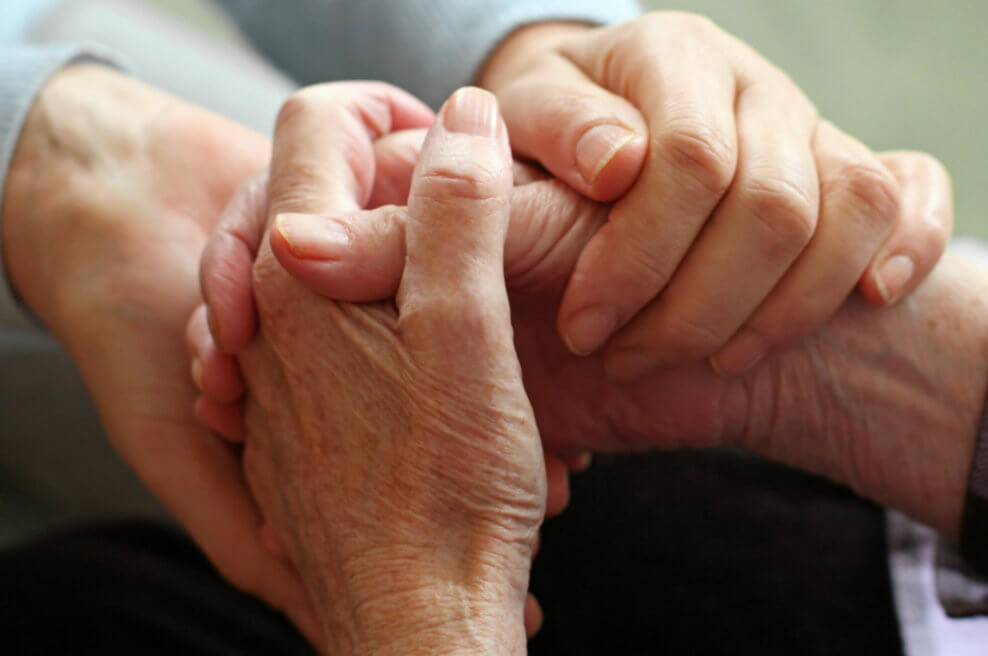
It may be hard to ask for what you need, but it’s beneficial in a number of ways.
Asking for what you need is often the most challenging thing for people who experienced traumatic environments as a child. Whether you’re struggling because you need to never depend on someone else and be vulnerable or because you are terrified of destabilizing a relationship by being honest about something that you need, the end result is magical thinking: the problem will go away on its own if you just wait longer, if you suck it up.
Or, perhaps: my partner will figure it out eventually! I just have to be patient and hope they notice this one thing. Even a “highly sensitive person” (a term about which I have C-PTSD suspicions) who loves you deeply will never be able to know what you need without you explaining it to them, without you first initiating the discussion of what is best for you.
The best relationships I have in my life are those in which I have, despite the lurching nervous nausea as I did so, shot straight and asked if we could discuss x situation and how it felt for me, what I needed in the moment, what I need in the future.
“That hurt” gets built upon with nuance: I felt this, when you did that, it felt like you meant this other thing, and that made me feel some type of way.
Offering a Guide Map
The specificity you provide in such a situation is offering a guide map to the contours of your heart. It assumes that they love you and want to treat you the way you want to be treated, but that they are separate entities who cannot know what you want or need until you ask for it. It assumes goodwill, trusting that they want to give you what you want, and builds trust between yourself and yourself: your needs are worth expressing, communicating, and others want to hear about them.
The first time I did this was in a new relationship with a boy who had done something banal that triggered flashbacks of an abusive relationship a few years prior. The same banal behavior, in that other situation, used to be the cue for a tonal shift right before the abuse would start. I panicked, and left the house where we were staying, and then as I calmed down I realized that what I was doing was essentially unfair to this new partner.
He didn’t know what I was feeling or thinking in that moment, all he knew was he had gotten frustrated and I had fled. I returned and asked if we could talk, thinking that at least I owed him an explanation. I half assumed he would break up with me before he would be willing to change his behavior, and it was with this assumption I asked to speak to him about what had just happened.
An explanation tumbled out, shaky and breathless, and he listened and listened. When I was finished, he cupped my face in his hands and I flinched, then relaxed into his soft touch.
“Thank you for telling me that,” he said.
A Gift of Sorts
I was stunned. I had never before considered that offering up information about my triggers and boundaries to someone could be a gift of sorts, but it was.
I was showing I trusted him to respect me, and giving him an opportunity to love me better, more specifically attuned to my needs.
By enthusiastically thanking me for asking for what I needed, he had given me a gift as well. For the first time I recognized that a healthy relationship isn’t just about attuning yourself to the other person and investing in that bond, but that it was possible to collaboratively build the kind of system between the two of you in which your particular bond can flourish.
I could imagine better things than mere connection built on happenstance once I realized that intention and communication could also nourish our bonds.
Humans crave connection, and everyone learns at their own rate, but if I had just had a little better direction available to me at certain points in my life, I might have saved myself a lot of physical suffering caused by the necessary unlearning of codependence, learned helplessness, and passivity that came with being raised into feminine binary gender roles the way I was. I craved answers, direction, insight.
What My Limits Were
I read books upon books about relationships by authors who pretended that their directive was divinely inspired or at least divinely informed, and the result was that I got married with no concrete sense of my own self or my own needs.
I didn’t know what I liked, only what I disliked. I didn’t know what my limits were, so I compromised myself and put my partners into difficult positions of having to set boundaries for me and then handle the emotional upheaval that came with giving a codependent naif a hard no.
These boundaries, these moments of being given limits, were such a gift in retrospect. I can anticipate my own needs and advocate for them now, but it took so much work to get here. The full-body anxiety of telling someone no was slowly replaced by full-body anxiety of asking for what I needed, and eventually both were replaced by a self-assured calm that not only were my needs and limits utterly sane and valid, but that anyone who could not appreciate them as a gift of information, an invitation to love me excellently, was not worth my time or the gift of my vulnerability. I could enjoy them from afar, but they didn’t need to come into my inner chambers of intimacy.
It sounds so daunting and looking back, I realize I’ve spent the better part of the last decade trying to answer the question: what do I need to thrive in community, in love? I’ve finally gotten some hard-earned answers, and I like myself better and better the more I understand how I work when I’m given what I need to thrive.
Refining the Tools
Because of asking for what I need, now that I know what it is, I find myself surrounded by dear friends for whom honesty and deliberate communication of needs and limits isn’t a prospect fraught with potential conflict. Instead, we are constantly refining the tools with which we tend to each other, meeting each other where we are at and growing simultaneously but on our own schedules and in our own ways.
And it’s better than I could have hoped for, back when I was a baby human asking my boyfriend to please not trigger me by slamming things around when he was irritated that he’d lost his keys. The time spent steeling myself to ask for such small things, to take up any space at all has paid off, and while I may still struggle in a romantic relationship to assert my needs sometimes, I don’t doubt my instincts anymore or the validity of my own boundaries.
My ability to trust myself is mended every time my body asks for something and I take that seriously and make meeting that need possible–be it a conversation that builds trust and security with a friend or partner, or just feeding myself when I’m hungry. It’s a work in progress, but the more effort I put into it, the more integrated and grounded I feel within myself, and the more I have to offer those in my community.
Politics

Opinion: The problem with Youngkin’s Charter-Lab schools push in 2024
The Problem Governor Glenn Youngkin introduced 233 amendments to the bipartisan budget so it was hard to know how to assess his budget–for example,...

What to know about Trump’s legal issues
Over the past year, former president Donald Trump has become the center of not one, not two, not three, but four criminal investigations, at both...
Local News

Virginia verses: Celebrating 5 poetic icons for National Poetry Month
There’s no shortage of great writers when it comes to our commonwealth. From the haunting verses of Edgar Allan Poe, who found solace in Richmond's...

Join the fun: Recapping Family Literacy Night’s storybook adventures
When’s the last time you read a book aloud with a loved one? If it’s difficult to answer that question, then maybe it’s time to dust off that TBR...




